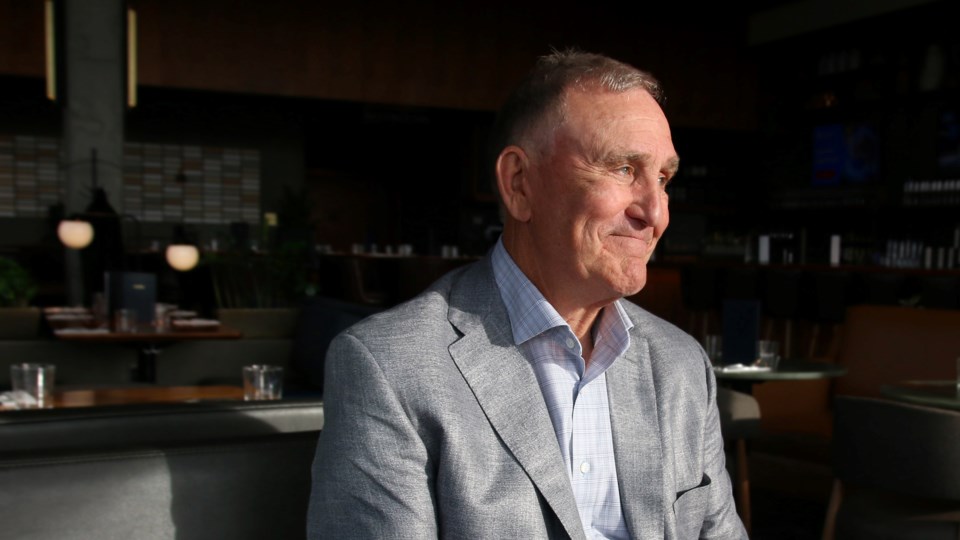Since 2005, more than 100 leaders have been inducted into the Business Laureates of British Columbia Hall of Fame, including seven celebrated last week at the program’s 19th annual awards gala, hosted by Junior Achievement British Columbia (JABC).
Recognized for their vision, leadership and integrity, the 2025 laureates have each built a legacy in the province that has enriched the lives of others, contributed immensely to community and served as a model for forward-thinking, mindful and successful business leadership.
BIV sat down with three of this year’s honourees to reflect on the careers they’ve led and impact they’ve made.
This is part one of a three-part series featuring excerpts from those interviews. Find John Nicola's interview here and please visit BIV.com May 15 for an interview with Ryan Beedie.
Four other individuals have been inducted into the Hall of Fame posthumously: Ivan Andersen and Bob Stewart; Keith Beedie (alongside Ryan Beedie); and Bus Fuller (alongside Stan Fuller).
Stan Fuller: Change is our friend
Stan Fuller’s career in the family business started as a cook and a doorman at a tougher location in Surrey that required “a big rugby guy to stop some bad people from coming in,” he says.
The restaurateur worked for his father, the late Bus Fuller, who operated cafés and coffee shops in the U.S. before immigrating to Canada.
“The day I got out of university, I hung around the office for a couple days and he finally just handed me the keys for a Fullers restaurant,” Fuller recalls.
It was the start of something that ended abruptly, and paved the way for something new: When interest rates spiked in the early 1980s, Bus went broke. And then Earls was born.
“A couple of broken-down old Fullers restaurants, that’s what we started with,” says Fuller.
Across brands and concepts, people are central to the Fuller family business, including the more than 7,000 people who serve guests at 70 locations in Canada and the U.S.
Rebuilding a business in a challenging financial environment wasn’t easy. Fuller says he faced tough times in the early 1990s, when he felt the organization wasn’t as “people strong” as it is today. Initially a beer-and-burger place, Earls also grew fast.
“Pretty soon we saw that a lot of people were trying to copy us, and so we had to adopt: ‘Change is our friend,’” says Fuller, Earls’ CEO.
A willingness to not only embrace change, but to be a driver of it through innovation and improvement, has been critical to the company’s success. “It’s our advantage,” Fuller explains.
At the time, Earls changed the menu, and they made their restaurants bigger so that their evolving concept was more expensive to copy. When the pandemic hit, the company was the first to adopt pick-up and delivery services, which allowed the business to keep key people employed.
“We survived that whole long time, when a lot of people got rid of everything,” he recalls.
And change continues. The technology that supports the order tablets and systems used throughout the chain are “undergoing a revolution,” Fuller says, which means Earls is in the process of re-writing entire systems used to manage aspects of day-to-day operations at their dozens of locations.
The company is expanding, with new locations in Miami and Hawaii, and exploring a franchise deal with a partner in Taiwan — a deal that would represent the brand’s first location outside of North America.
Three things back up Earls’ ongoing success, Fuller says: “Great people. Your product has to be magic, and you have to have systems and systems and systems that keep it that way.”
Fuller wrote many of those systems as the author of Earls’ original manuals and philosophy.
The processes have changed over time, but the philosophy hasn’t. “People and talent are everything, really,” Fuller says. “All the rest? Anybody can copy if they have the capital.”
It was something he says Bus knew well. “He loved to be out with people, and they could tell he loved to be out with them. He was a real people person.”


